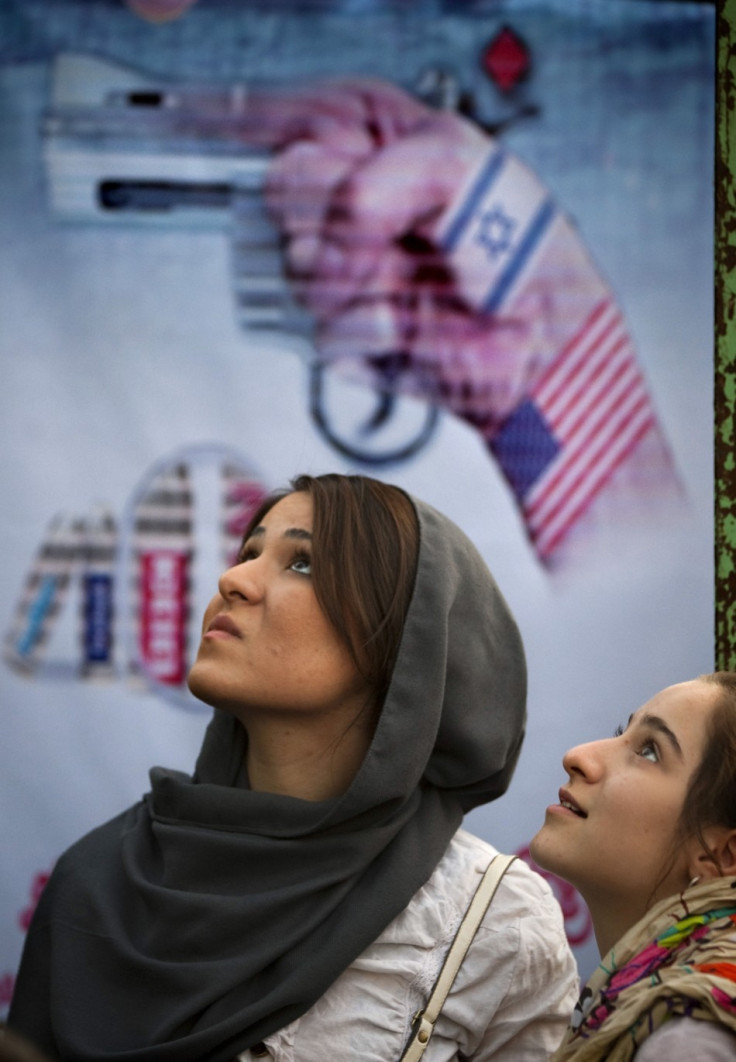How Would Iran Retaliate to an Attack by Israel?

Reports of an Israeli plan to attack Iran's nuclear facilities has ratcheted up tension across the Middle East. The International Business Times analyses what would be the ramifications.
The release of a UN nuclear watchdog report that Iran is building a nuclear bomb is a nightmare for the Jewish state, which fears the Islamic extremists who have an important voice in President Ahmadinejad's regime dreams of waging genocidal war against the 'ZIonist entity.'
Israel has already proved it is willing to strike against an enemy plotting to build a nuclear arsenal, bombing Saddam Hussein's French-build nuclear plant in a sudden, daring raid in 1981.
But a potential Israeli, US or even Israeli/US attack on Iran, is considered by many military experts to be a serious mistake.
It could immediately trigger a global energy crisis with oil prices going stratopheric, as Iran has threatened to shut down all oil shipments through the Strait of Hormuz. With a global economy still fragile and a Eurozone crisis looming an oil shortage would plunge the western economies into a slump as dark and chaotix as the Great Depression of the 1930s.
Moreover, while Israel's bombing of the Iraqi Osirak reactor in Iraq was spectacular, it did not bring Saddam Hussein's nuclear programme to a halt but instead made him even more determined to continue with it.
Equally, an attack on the Iranian facilities would not stop Iran's nuclear programme, and analysts have warned it would only make Iran's ambitions more covert and secret.
In the months following the Arab Spring Israel has also become more isolated regionally, and with a degrading economic situation, Israel's Prime Minister Benjamin Netanyahu has seen his popularity decline at home.An attack on Iran would increase these problems exponentially.
Meanwhile, the invasion of Iraq based on false claims that Saddam's regime had acquired Weapons of Massive Destruction (WMD's) is also still anchored in the regional collective psyche and a military strike against Iran wouldturn anti-Israel and anti-American feeling into raging hatred.
Indeed, an attack on Teheran could prove valuable for embattled Syrian President Bashar al-Assad who could use the situation to try and rally the population against a common enemy. Likewise, Ahmadinejad's Islamic regime would be bolstered.
Iran, Syria, Hezbollah and Hamas are generally seen as forming an "axis of resistance" against the Israeli and US's aspirations in the Gulf the region and US, Israeli/Jewish and western interests across the globe would be potential targets for militants and suicide bombers.
Even Israel erstwhile friends in the region have cooled relations in recent months and at attack on Iran could break those strained bonds completely. Former strategic ally, Egypt, has become more distant following the fall of the Mubarak regime and anti-Israel feelings have mounted in the last few months leading in September to an attack on the Israeli embassy in Cairo. Relations with Turkey are also at an all-time low; in September Ankara expelled Israel's ambassador after the Netanyahu administration refused to apologize for the killing of nine activists with Turkish citizenship in the Gaza flotilla raid in 2010.
Recently Moshe Ya'alon, Israel's Minister of Strategic Affairs also accused Turkey of cooperating with Hamas and Iran, saying at a conference in Tel Aviv, "how can you trust a government that consorts with Iran and Hamas?" His comments came after the Shin Bet claimed Hamas had set up a command post in Turkey to recruit operatives that would be charged with overseeing regional operations.
On the other hand, in Saudi Arabia, the Kingdom's former Interior minister has recently been named as the heir to King Abdullah and while tensions between Saudi and Iran escalated following an alleged Iranian assassination plot to kill the Saudi ambassador to Washington , Crown Prince Nayef 's stance towards Israel is also hostile. He famously suggested that Israel's intelligence service, Mossad, was behind the September 11 attacks on the United States.
Also, an Israeli attack on Iran would prove politically unattractive for both countries, as they have partly defined their geopolitical strategy on a mutual opposition and threat, whether real or constructed. Israel's location in a midst of unfriendly regimes has enabled it to receive vast amounts of US aid to help assure the country's security.
Finally the U.S, as Israel's main backer, would lose all creidtbility in the Arab/Muslim world, a strategic cost that Washington is unlikely to be willing to bear.
© Copyright IBTimes 2025. All rights reserved.





















